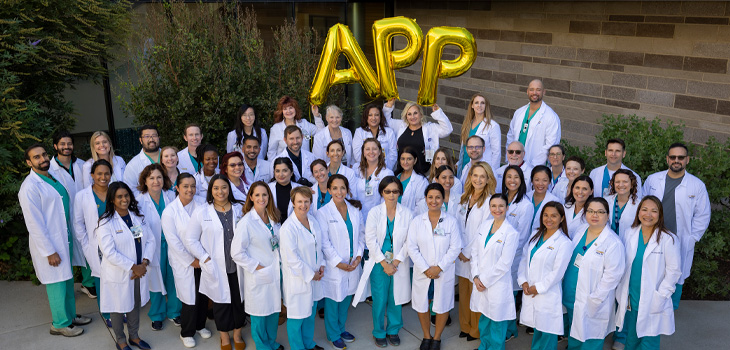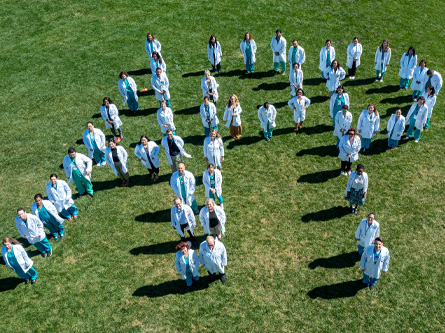
Health care can feel confusing, especially when you meet someone in a white coat who isn’t a medical doctor (MD). You may wonder: Who are they? What kind of education and training do they have?
APPs are an essential part of today’s care teams. Below, our UC Davis Health experts break down what Advanced Practice Providers (APPs) do and why they are so valuable.
What is an Advanced Practice Provider (APP)?
An Advanced Practice Provider is a licensed health care professional who has completed advanced training and graduate-level education. This category includes:
- nurse practitioners (NPs)
- physician assistants (PAs)
- certified registered nurse anesthetists (CRNAs)
- clinical nurse specialists (CNSs)
These health professionals can diagnose, treat, prescribe medications and manage a wide range of patient needs, often working as part of a team with physicians.
Learn about UC Davis Health’s Advanced Practice Providers
What is a whole care team approach?
A whole care team approach, also called team-based care, is an approach that combines the expertise of a range of medical professionals. This form of care values all team members for their unique abilities, training and expertise.
Research shows that when health care providers work together in a team, outcomes are improved. Our teams may include pharmacists, radiologists, nurses, social workers, medical assistants and advanced practice providers. APPs (nurse practitioners, physician assistants, certified registered nurse anesthetists) are licensed medical professionals who can support anesthesia, examine, test, treat and prescribe medications for patients. You may be scheduled for appointments with our doctors or members of the team to create the most comprehensive care experience.
How do advanced practice providers complement the medical care you receive?
APPs expand access to care, reduce wait times and allow health systems to serve more patients. They are known for providing holistic, patient-centered care, often spending extra time on education, prevention and building relationships. This teamwork means patients benefit from a broader spectrum of expertise without sacrificing quality.
Where do advanced practice providers practice?
APPs are everywhere:
- In large, urban hospitals and specialty centers, APPs help manage complex cases, assist in surgeries, and support busy clinics.
- In rural or underserved communities, APPs may be the main health care provider available, ensuring patients don’t have to travel hours for basic or even advanced care.
How do advanced practice providers fit into the bigger health care team?
Think of APPs as partners in care. They collaborate with physicians, nurses, pharmacists and therapists to deliver comprehensive treatment. For patients, this means more touchpoints, better coordination and safer, more effective care. By sharing the workload, APPs allow physicians to focus on the most complex cases while ensuring no patient falls through the cracks.
Learn about the Specialty Care APP Fellowship program
Advanced practice providers are highly trained professionals who improve access, enrich the patient experience and strengthen the health care system. The next time you meet an NP, PA, CRNA or CNS in a white coat, know you’re in capable, compassionate hands.
Learn about the Primary Care APP Fellowship program
This blog was medically reviewed by Chief of Advanced Practice Christi DeLemos.




